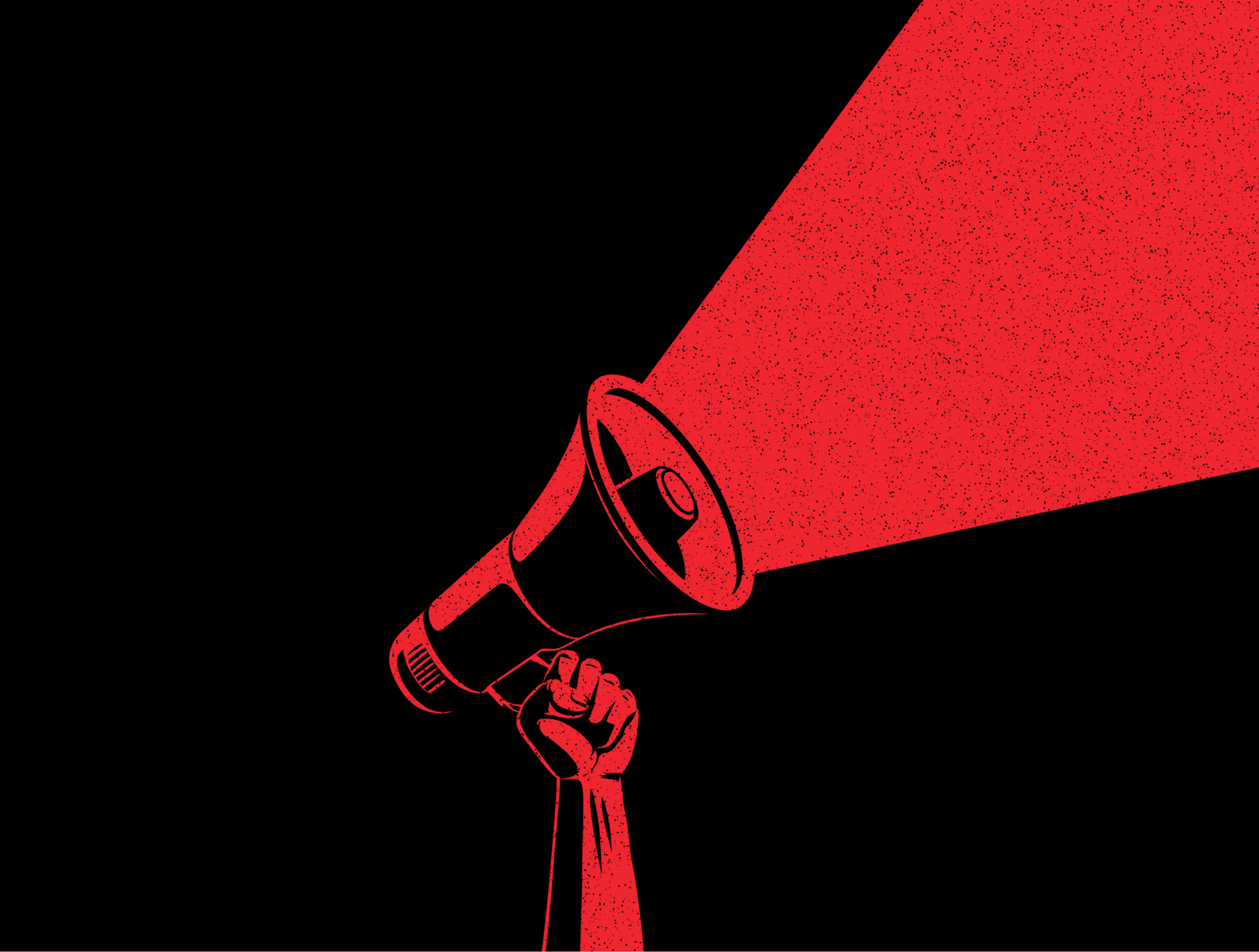Justice is Putin behind bars. Alexander Bakhtin’s court statement, sentenced to 6 years in prison for three posts against war in Ukraine
Alexander Bakhtin. Photo: SOTA
On August 11, the Mytishchi City Court near Moscow sentenced 51-year-old animal rights activist Alexander Bakhtin to six years in a penal colony. He was accused of spreading “fake news” about the army over three posts on VK written in the spring of 2022: about a possible blockade of Kyiv, the killing of civilians in Bucha, and Ukrainian volunteers risking their lives to save stray animals during the war. In addition to the prison term, the court ordered Bakhtin to undergo compulsory outpatient psychiatric treatment; an expert claims that he “could not fully understand the factual nature and public danger of his actions and control them.” We publish excerpts from Bakhtin’s objections in court, which he asked to be added to case files before the verdict. By reading these notes, readers can assess the clarity and consistency of his thought process.
- According to the presumption of innocence, I should not have to prove that the materials I published are true, but the prosecution should prove that these materials are “knowingly false information.” But it was not proven who exactly committed [military] crimes, so it was not established whether there was a criminal act in my actions.”
- Censorship is prohibited by the Constitution of the Russian Federation, and this Constitution has direct effect. Human rights in Russia can only be restricted during a state of emergency and martial law throughout Russia. But it was not declared, so there should be no punishment for publishing materials that contradict the position of the Ministry of Defence.
- My acts deemed criminal were in fact aimed at informing, acquainting my readers with a point of view alternative to the one that was then broadcasted in Russian media. At the same time, understanding that the official Ukrainian media are also an interested party in this conflict, I tried to find information on the internet not from official Ukrainian media, but reported directly by local residents of Ukraine on their social media pages, forums. My ultimate goal was to make my modest contribution to stopping this war, since, for example, I believe that the First Chechen War in 1996 was largely stopped due to the negative attitude of Russian society towards it.
- Regarding the “hatred and hostility” in my posts and expressions in the form of pointed descriptions of the Russian Armed Forces, these descriptions refer not to all the Armed Forces, but only to those who used various kinds of violence against the peaceful citizens of Ukraine, or those who unleashed this war, or called for it to be unleashed, that is, to war criminals. Perhaps, from the point of view of “generally accepted” definitions, my negative epithets relate to all their bearers, but I disagree with such an interpretation also because, as follows from the conclusion of the forensic psychiatric commission, I am generally prone to subjectivism, including in the use of various definitions. Thus, when a psychologist asked me to symbolically depict the concept of “justice,” I drew Putin behind bars. And to the psychologist’s question, what does justice have to do with it, I replied that for me, this is now associated with justice.
- The degree of severity [of the charge] should depend on the consequences of the actions. But can the prosecution prove that there were any specific consequences from the publication of those records? For example, that someone was disappointed in the Russian Armed Forces because of them and therefore committed some illegal act? At the time of my arrest, I had just over 60 friends on VK, and each criminal episode had around 100 views. There are no victims in the case. I stopped publishing these records around the summer of 2022 precisely because no consequences occurred. By that time, the vast majority of Russian citizens had already fully determined their attitude towards this war: some sincerely supported the Russian government in this; another part did the same but for opportunistic reasons (not to lose their job, etc.); a huge part of the people were intimidated (including by inadequate punishments for an anti-war position) and kept silent; quite a large part emigrated from Russia altogether; well, and a huge number of Russians decided that this war did not concern them at all. Thus, not only my publications but also anti-war publications in general could no longer change anything, unfortunately, everything was decided only on the battlefield.
- If my posts are so socially dangerous, then why has my VK page not been blocked for such a long time?
Mediazona thanks Nikita Spivak, the OVD-Info lawyer, for the access to his client’s manuscript.
Editor: Dmitry Tkachev
Help save Mediazona. We need you
Mediazona is in a tough spot—we still haven’t recovered our pre-war level of donations. If we don’t reach at least 5,000 monthly subscribers soon, we’ll be forced to make drastic cuts, limiting our ability to report.
Only you, our readers, can keep Mediazona alive.
Save Mediazona
Fear of “sudden unrest or an unpredictable event”. Here’s why Russian Supreme Court designated Navalny’s movement as a “terrorist organisation” “I consider Ukraine my home; I love this country”. Closing statement of powerlifting champion Yulia Lemeshchenko, sentenced to 19 years in Russia A warrant for a warrant. Moscow adds International Criminal Court leadership to wanted list for “illegal prosecution” of Russians and “provoking a war” Strategic bureaucratese. Vladimir Putin requests “coordinated proposals on the possible start of work to prepare for nuclear weapons testing” When borders fail to protect. Missing Chechen woman Aishat Baimuradova found dead in Yerevan